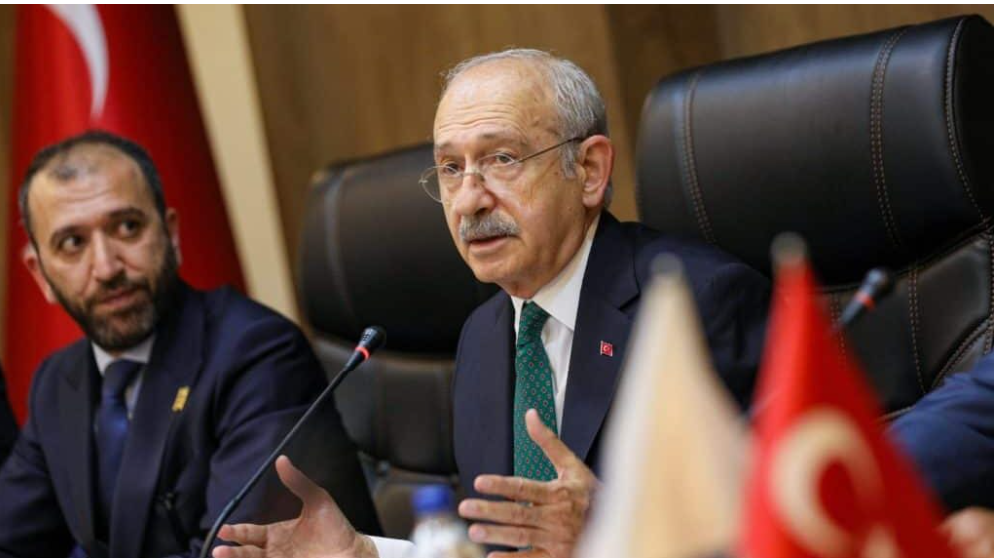By 3am on the morning of 15 May, when Recep Tayyip Erdogan gave a triumphant speech to the crowd outside his party’s headquarters in Ankara, extolling his unexpected lead over the opposition and a surprise majority for his coalition in parliament, the young voters were still awake but their hopes for change had been crushed.
Turkey’s opposition, led by the former accountant Kemal Kilicdaroglu, forced Erdogan into a second-round runoff, a rare setback for the incumbent leader of two decades. But Erdogan appears rejuvenated and is in pole position for the ballot on 28 May after taking 49.5% of the vote compared with Kilicdaroglu’s 44.9% in the first round.
Turkey’s opposition, meanwhile, is reckoning with a lack of enthusiasm among its supporters. When polled before the first round, the majority of voters said their greatest concern was Turkey’s ongoing economic crisis. The opposition believed this would be enough to convince the public to turn away from Erdogan after two decades. However, even in pre-election surveys most voters did not believe Kilicdaroglu was capable of winning.
Erdogan has encouraged his supporters to show up at the polls a second time, warning them against being complacent. “Even though they have fallen behind, they are doing everything they can to muddy the waters and put a shadow over the national will,” he said of the opposition.
“Be certain that they will maintain this attitude until 28 May: if we don’t stand firm and continue as we have done, there’s no doubt the other side will fall on to the ballot boxes with their disrespectful and fascist attitude.”
In a further boost to the president, Sinan Ogan, the nationalist candidate who came third in the first round, formally endorsed Erdogan on Monday.
Most opposition voters said they intended to vote in the runoff, but some said they would stay away, in what could be a potentially lethal loss of votes for Kilicdaroglu.
“I don’t intend to vote in the second round, I have no desire to wait in line for hours. I think everyone has accepted that the opposition has failed. People believe Erdogan has already won,” said Feyyaz, a 41-year-old cafe owner, making espressos while a blues track featuring a singer wailing about “the end of sweet dreams”, played over the speaker system.
He voted for Kilicdaroglu and his Republican People’s party (CHP) in the first round, he said, “because there was hope. But now, no one feels hopeful.”
As the week after the election drew on, opposition supporters seized on examples of irregularities in the vote count, including data inputted incorrectly into a system run by the supreme election council, or YSK. CHP official Muharrem Erkek later said the opposition had challenged results in 2,269 ballot boxes for the presidential election and more for the parliamentary vote, but that these discrepancies would not alter their loss. “We follow each vote, even if it does not change the general results,” he said.
Despite CHP officials promising they would keep a parallel tally of the vote count and release their own data to the public; this is yet to surface. Instead, fears and panic about their loss being tied to unspecified election fraud reverberated among opposition voters.
Observers from the Organization for Security and Co-operation in Europe said the vote was handled fairly despite being held in an undemocratic political environment. “[Turkey’s] general elections were well-managed and offered voters a choice between genuine political alternatives, but the current president and the ruling parties enjoyed an unjustified advantage,” they said.
In a desperate effort to close the gap on his opponent and garner votes from Turkey’s nationalist right, Kilicdaroglu hardened his rhetoric and doubled down on promises to deport millions of refugees. “Let those who love their country come to the ballot box!” he said.
He also called for more electoral observers, sidestepping accusations from Turkish journalists that the CHP had left 20,000 ballot boxes without observers in the first round despite their promises of tight election security.
“This time we need not one, not two, but five observers at each ballot box. We need more brave ballot box observers … who we can rely on under any circumstances,” he said.
Follow our English language YouTube videos @ REAL TURKEY: https://www.youtube.com/channel/UCKpFJB4GFiNkhmpVZQ_d9Rg
And content at Twitter: @AtillaEng
Facebook: Real Turkey Channel: https://www.facebook.com/realturkeychannel/
